| Strain Name |
C57BL/6-Nt5etm1(NT5E)Bcgen/Bcgen
|
Common Name | B-hCD73 mice |
| Background | C57BL/6 | Catalog number | 110027 |
|
Related Genes |
NT5E (Nt5e, 5' nucleotidase, ecto) | ||
|
NCBI Gene ID |
23959 |
||
Protein expression analysis
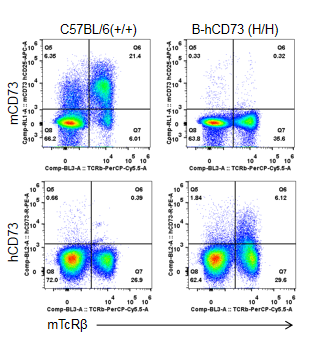
Strain specific CD73 expression analysis in homozygous B-hCD73 mice by flow cytometry. Splenocytes were collected from WT and homozygous B-hCD73 (H/H) mice, and analyzed by flow cytometry with species-specific anti-CD73 antibody. Mouse CD73 was detectable in WT mice. Human CD73 was exclusively detectable in homozygous B-hCD73 but not WT mice.
Protein expression analysis
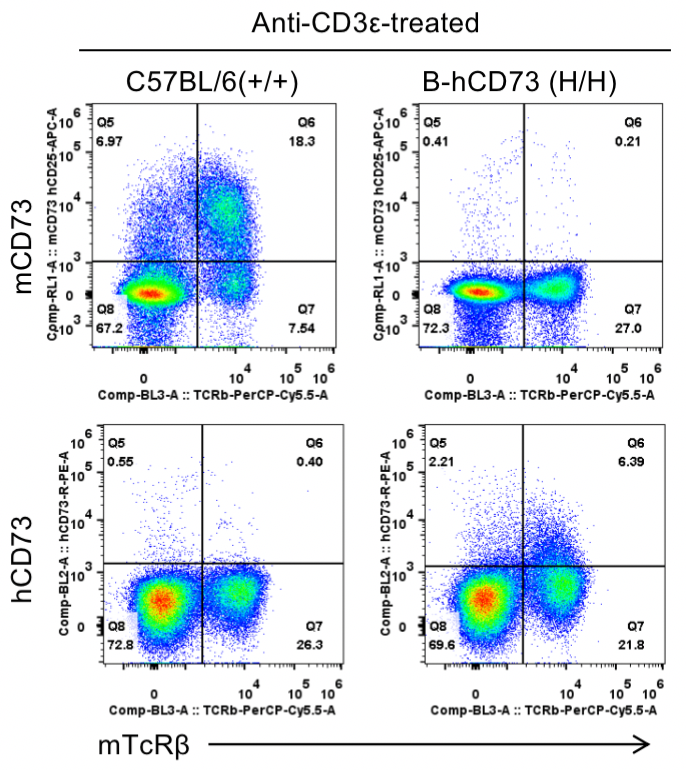
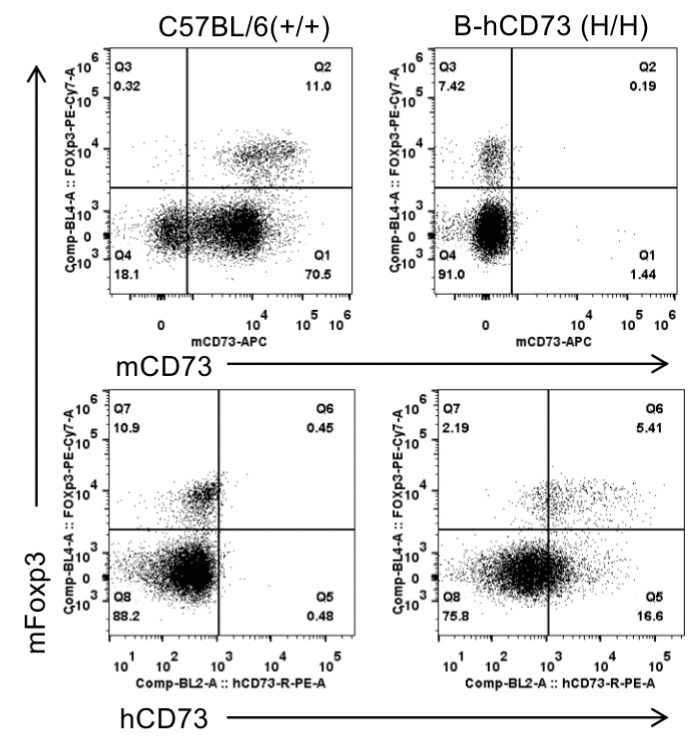
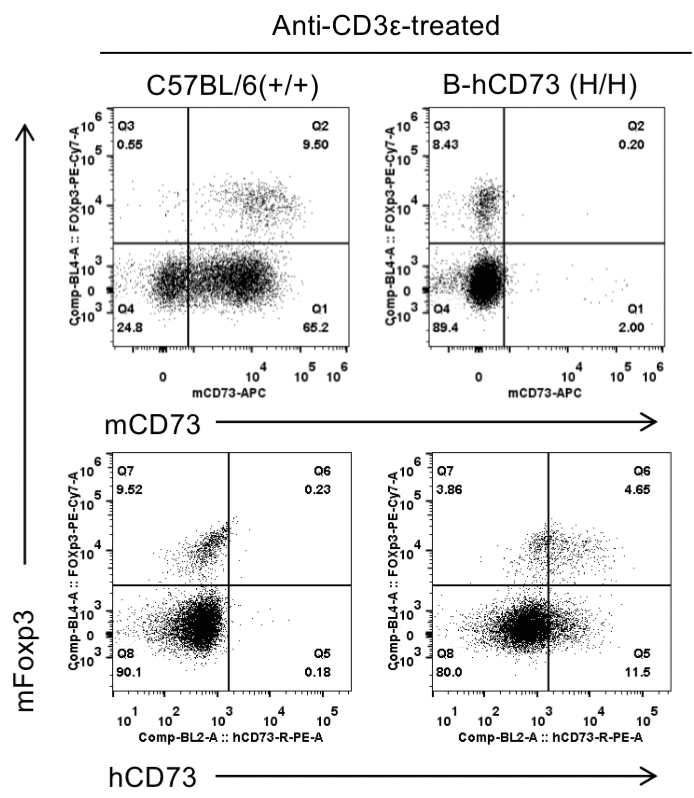
In vivo efficacy of anti-human CD73 antibodies
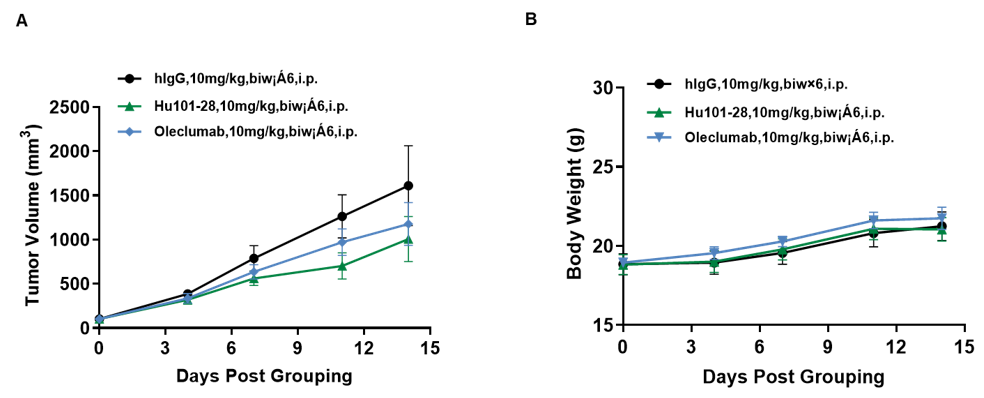
Combination therapy of mPD-1 Ab and hCD73 Ab
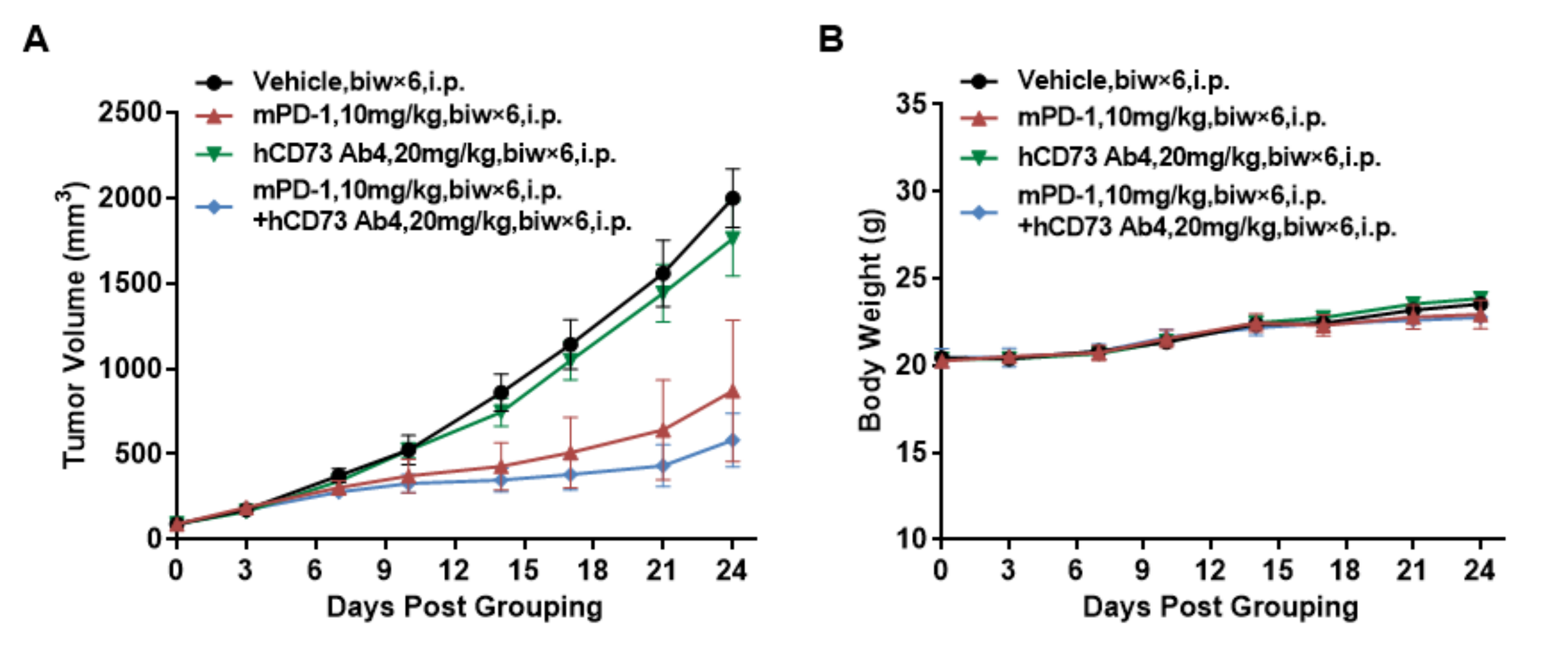
Antitumor activity of anti-mouse PD-1 antibody combined with anti-human CD73 antibody in B-hCD73 mice. (A) Anti-mouse PD-1 antibody combined with anti-human CD73 antibody (provided by client) inhibited hCD73-MC38 tumor growth in B-hCD73 mice. Murine colon cancer hCD73-MC38 cells were subcutaneously implanted into homozygous B-hCD73 mice (female, 7-8 week-old, n=6). Mice were grouped when tumor volume reached approximately 80 mm3, at which time they were treated with anti-mouse PD-1 antibody and anti-human CD73 antibody with doses and schedules indicated in panel A. (B) Body weight changes during treatment. As shown in panel A, combination of anti-mPD-1 antibody and anti-hCD73 antibody shows more inhibitory effects than individual groups, demonstrating that the B-hCD73 mice provide a powerful preclinical model for in vivo evaluating combination therapy efficacy of mPD-1 antibodies and hCD73 antibodies. Values are expressed as mean ± SEM.











